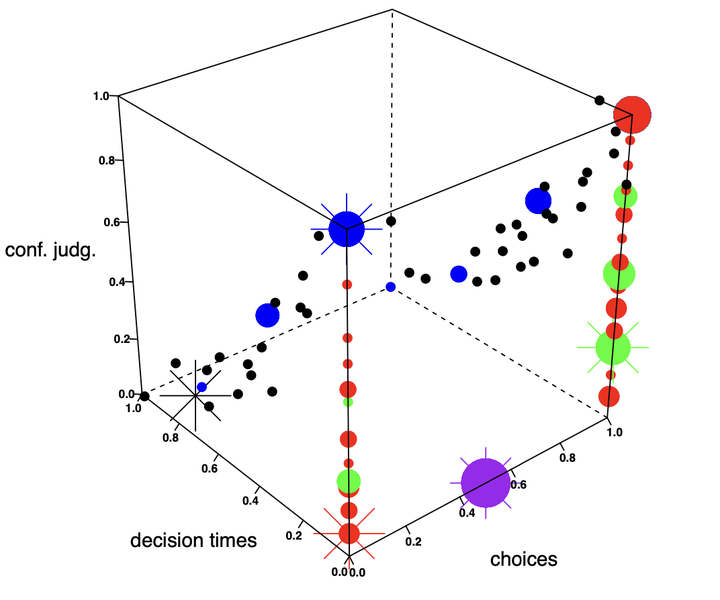Diagnostic task selection for strategy classification in judgment and decision making: Theory, validation, and implementation in R

Abstract
One major statistical and methodological challenge in Judgment and Decision Making research is the reliable identification of individual decision strategies by selection of diagnostic tasks, that is, tasks for which predictions of the strategies differ sufficiently. The more strategies are considered, and the larger the number of dependent measures simultaneously taken into account in strategy classification (e.g., choices, decision time, confidence ratings; Glöckner, 2009), the more complex the selection of the most diagnostic tasks becomes. We suggest the Euclidian Diagnostic Task Selection (EDTS) method as a standardized solution for the problem. According to EDTS, experimental tasks are selected that maximize the average difference between strategy predictions for any multidimensional prediction space. In a comprehensive model recovery simulation, we evaluate and quantify the influence of diagnostic task selection on identification rates in strategy classification. Strategy classification with EDTS shows superior performance in comparison to less diagnostic task selection algorithms such as representative sampling. The advantage of EDTS is particularly large if only few dependent measures are considered. We also provide an easy-to-use function in the free software package R that allows generating predictions for the most commonly considered strategies for a specified set of tasks and evaluating the diagnosticity of those tasks via EDTS; thus, to apply EDTS, no prior programming knowledge is necessary.